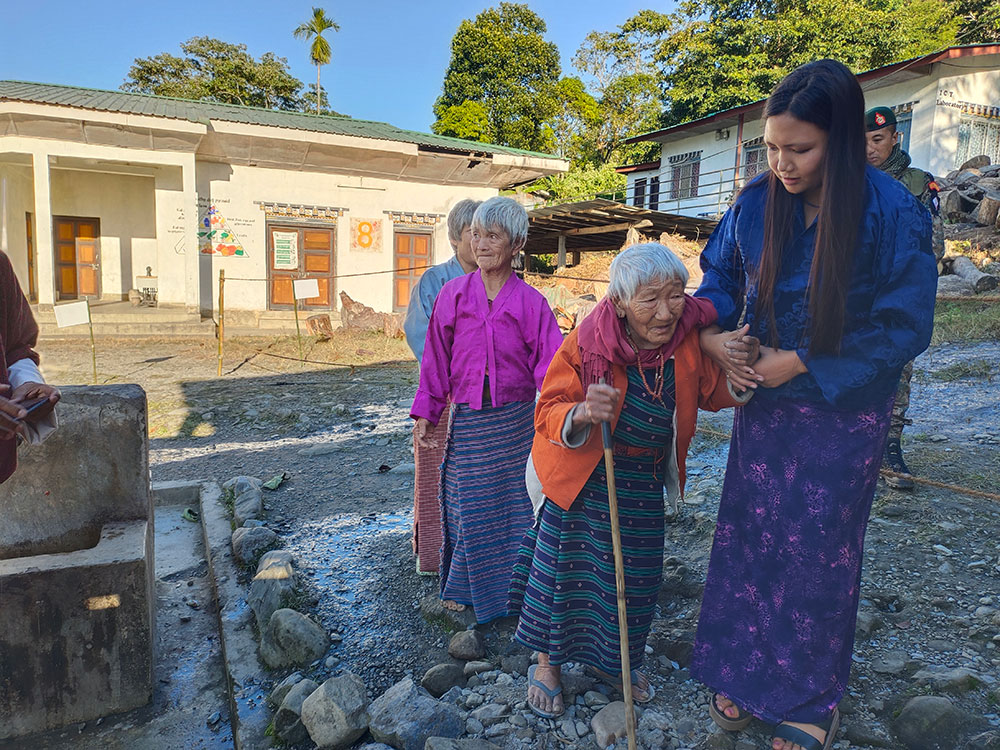Lhakpa Quendren
Panbang: As an increasing number of persons with disabilities (PWDs) engage in the electoral process, political party supporters are assisting those with hearing and speaking impairments in casting their votes.
In the recent primary round of the fourth parliamentary elections, 60-year-old Karma from Panbang, facing challenges in hearing and speaking, exercised her voting right with the support of a family member.
Accompanied by her 90-year-old mother and great-granddaughter-in-law Tshering Yangzom, Karma reached the Panbang Primary School polling station at the close of the polling day.
Tshering Yangzom, guiding Karma through the voting process, cast the vote on her behalf after signing the undertaking letter. She said, “I communicate with the election officials on her behalf. Since she does not know at all, I must vote on her behalf.”
While the initiative for an inclusive society is lauded, there are calls for comprehensive voting education for individuals with various impairments, including hearing and speaking difficulties, vision impairment, autism disorder, mental illness, or physical disabilities.
Advocates argue that all eligible voters should have equal access to information and resources essential for participating in the electoral process.
A political observer emphasises the significance of incorporating sign language interpretation in candidate events like debates and speeches.
“Such efforts can enable them to decide and vote independently, rather than having others vote on their behalf,” he said.
Another obser highlighted the challenge of voters being unaware of their candidate’s stance, making it difficult to choose wisely at the polling station and suggested that helping people with disabilities can be as straightforward as using videos, contributing to their comfort and confidence.
As party supporters assist PWDs with pickup and drop-off services on polling day, critics argue that the participation of these voters is politicized, given the potential impact of even a single vote on the election outcome.
To aid PWDs facing challenges such as chronic illnesses, bedridden conditions, advanced age, or mobility issues, the Election Commission facilitated early voting. In the recent primaries in Zhemgang, out of 13,570 eligible voters, 36 were persons with disabilities (PWDs), including those who personally came to the polling stations, a notable change from past elections.
Zhemgang’s election officials anticipate a further increase in PWD participation in the upcoming general round.


